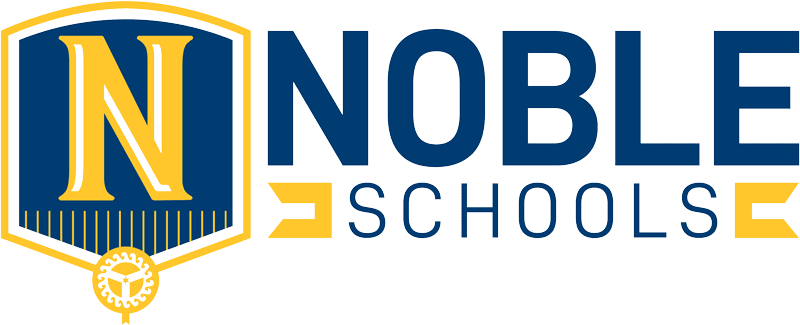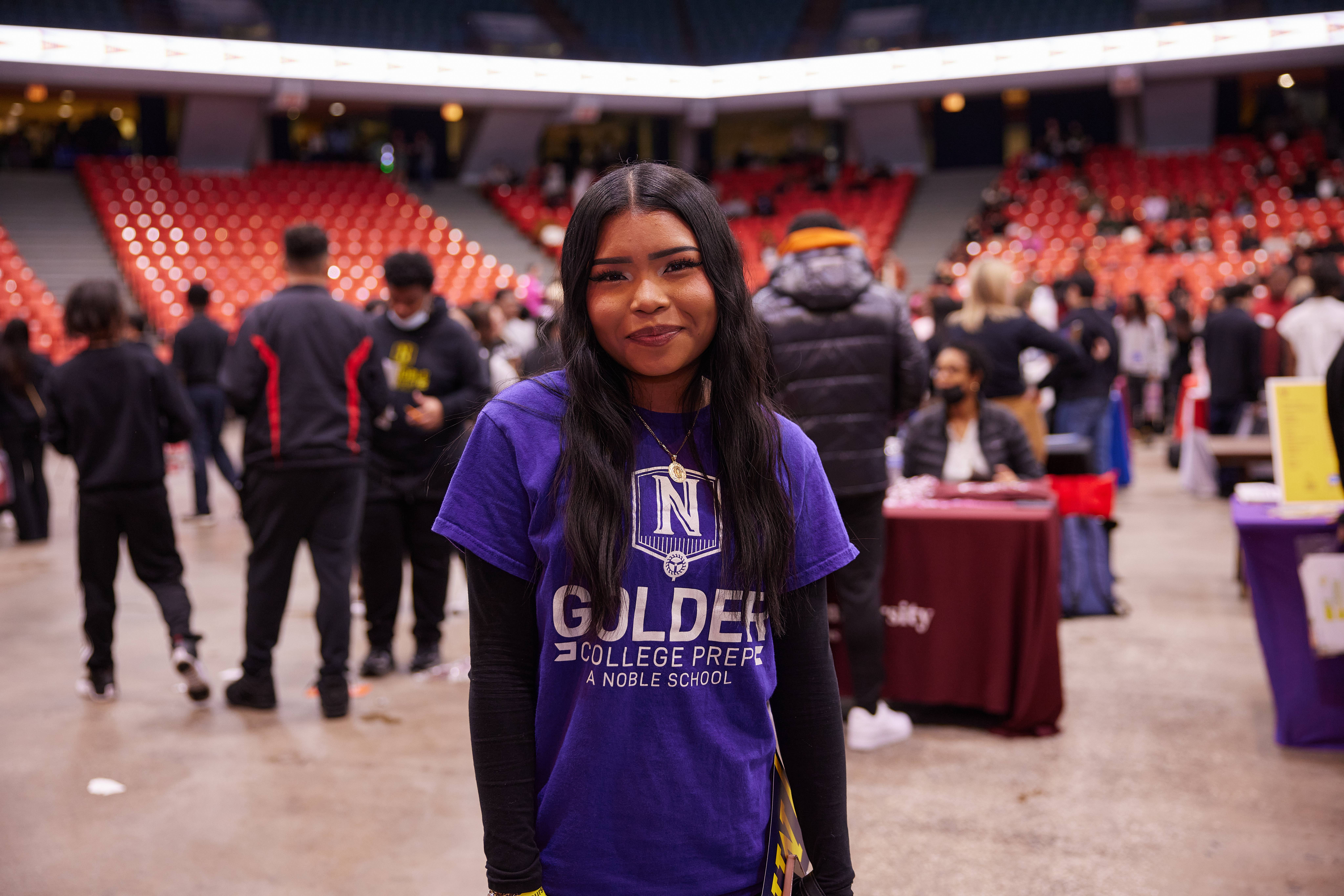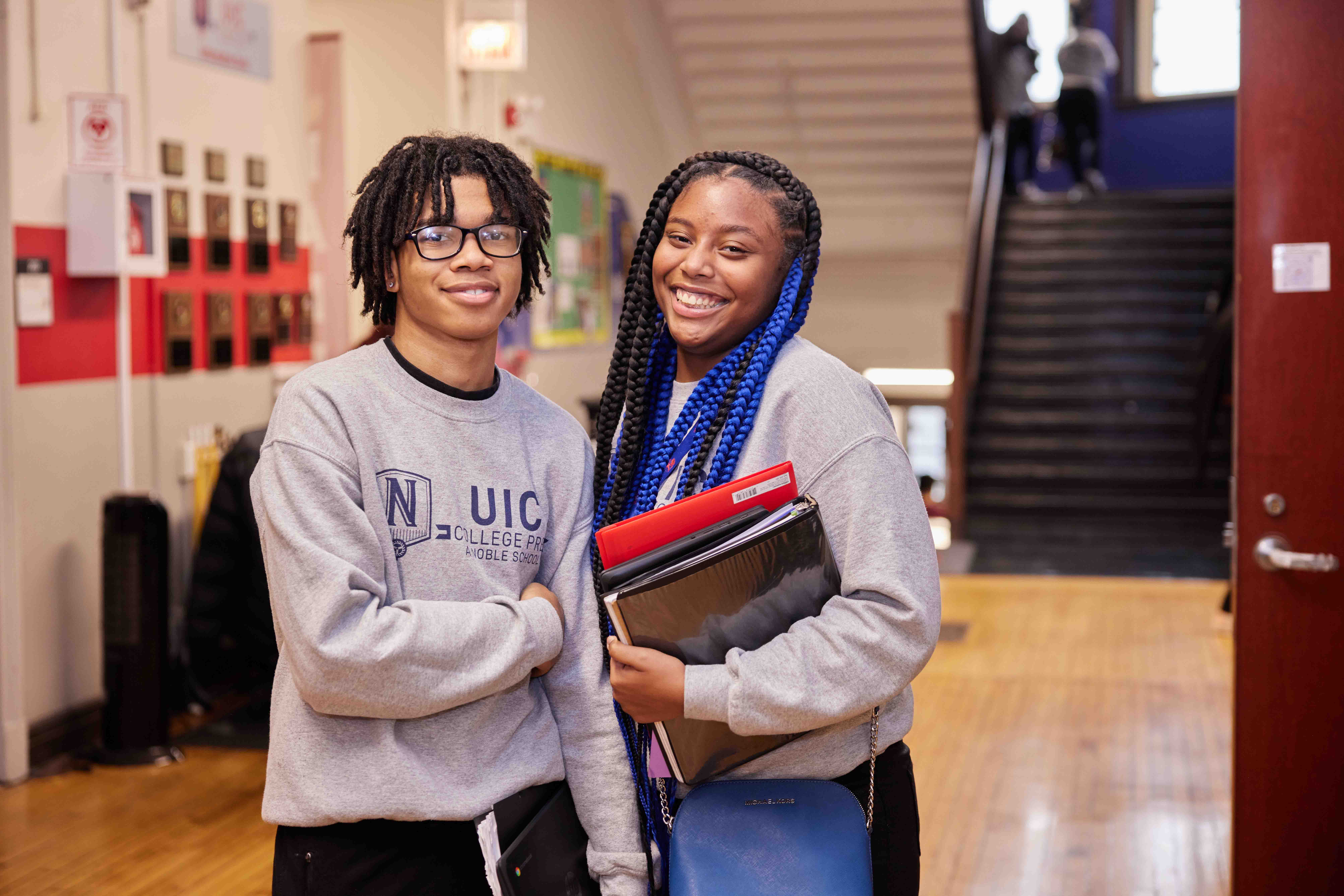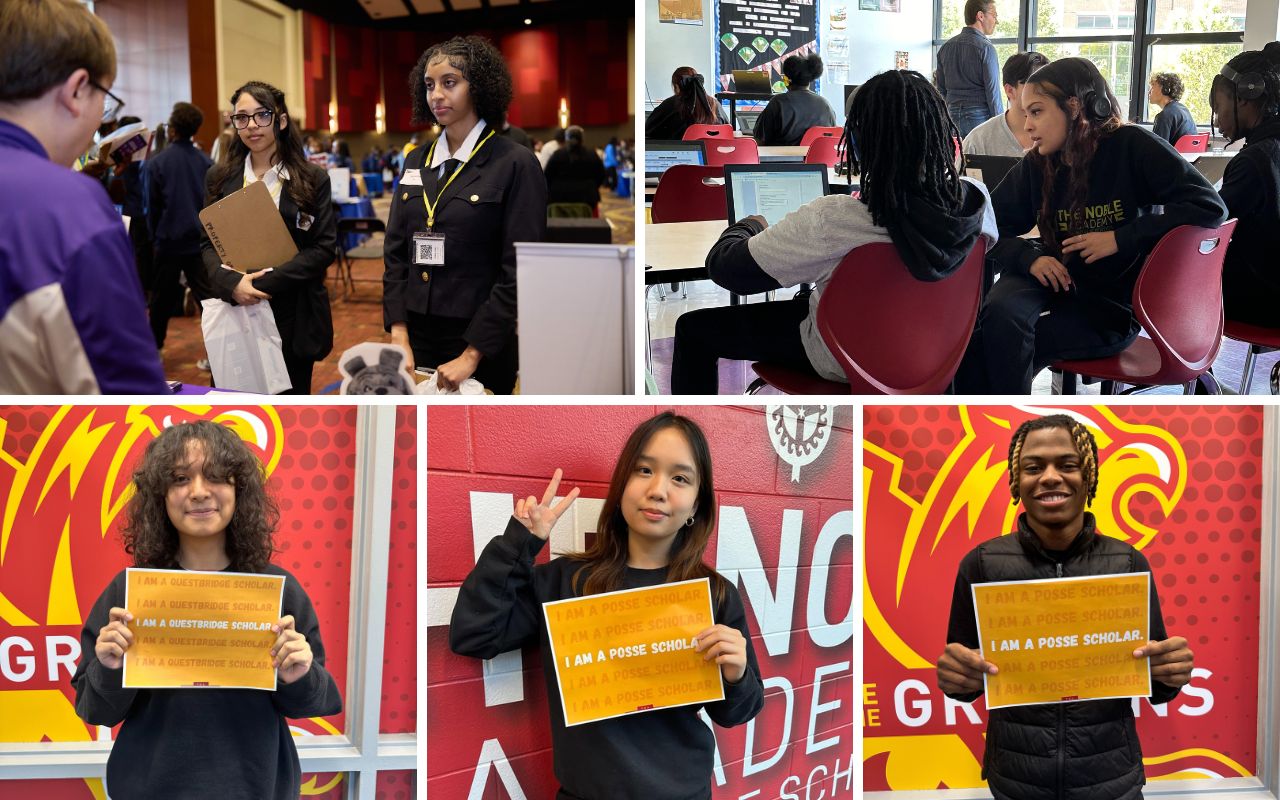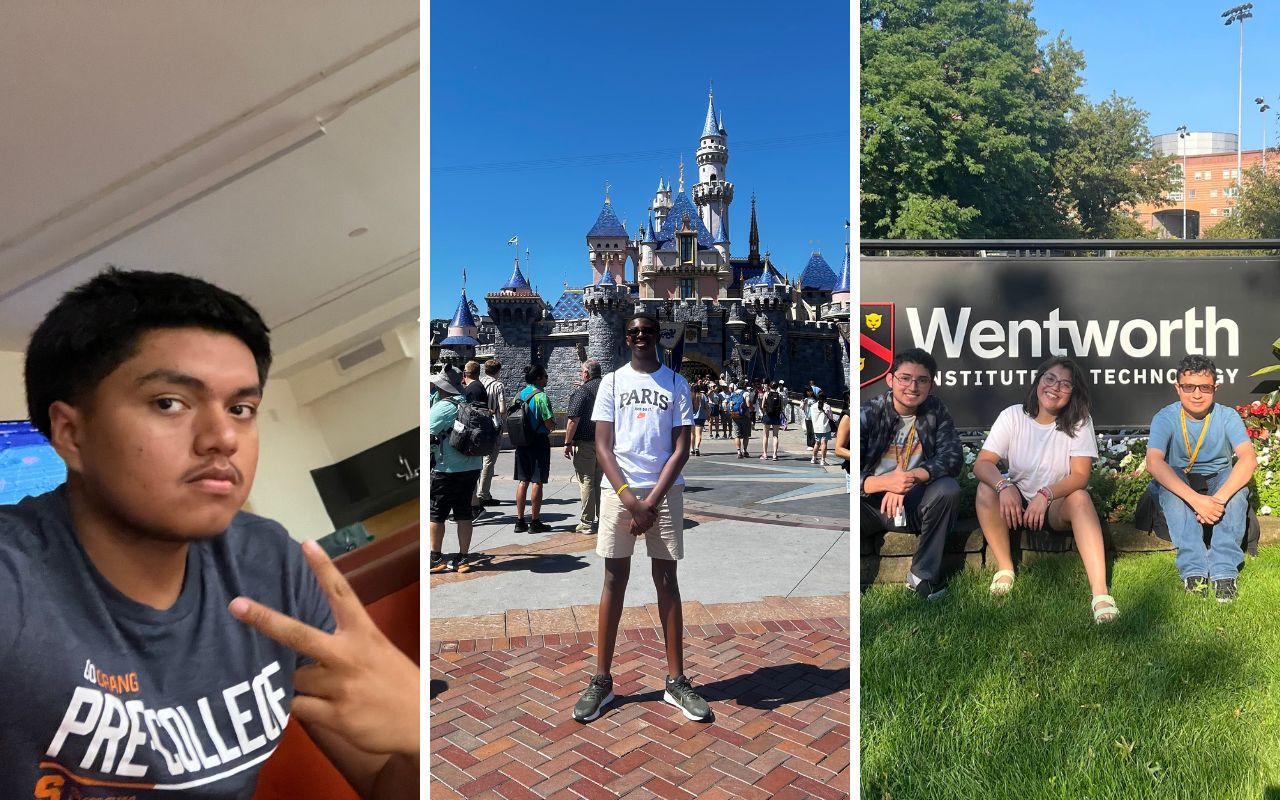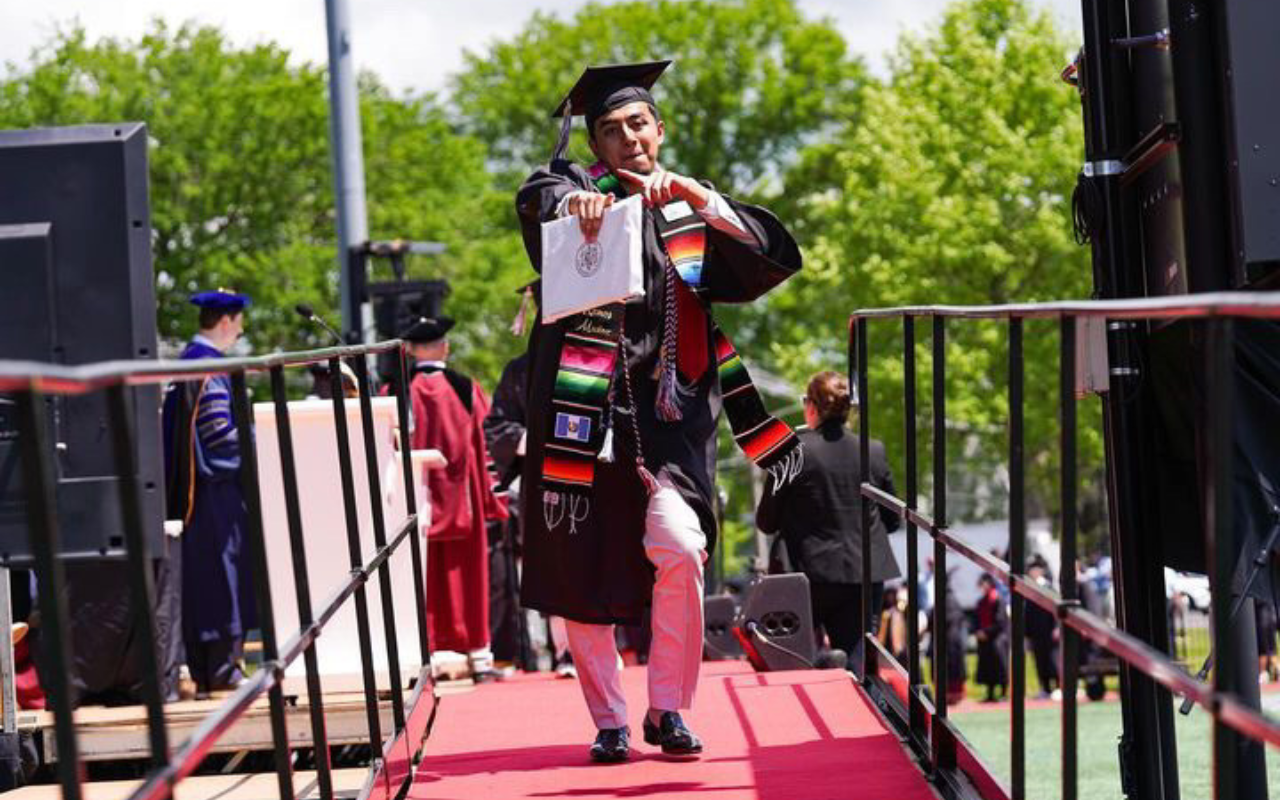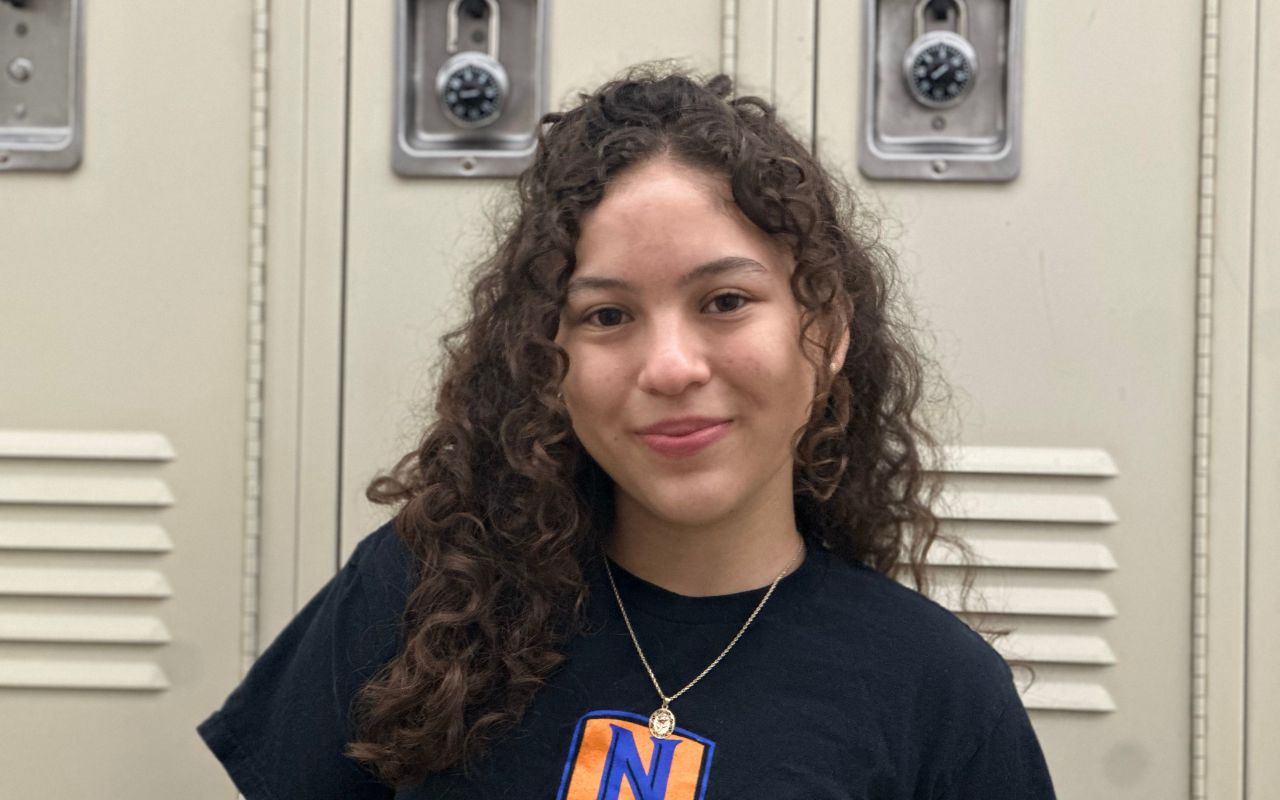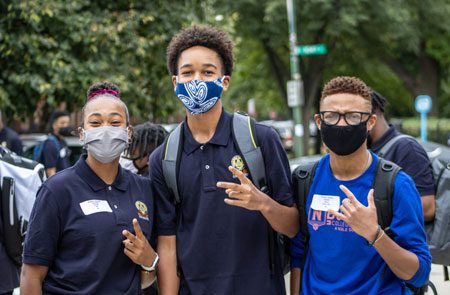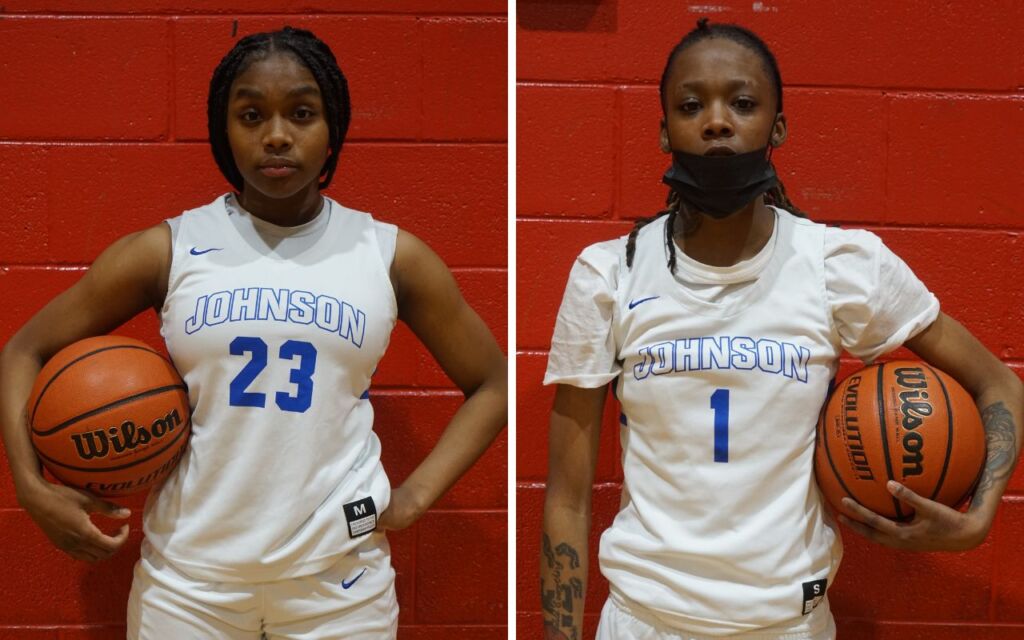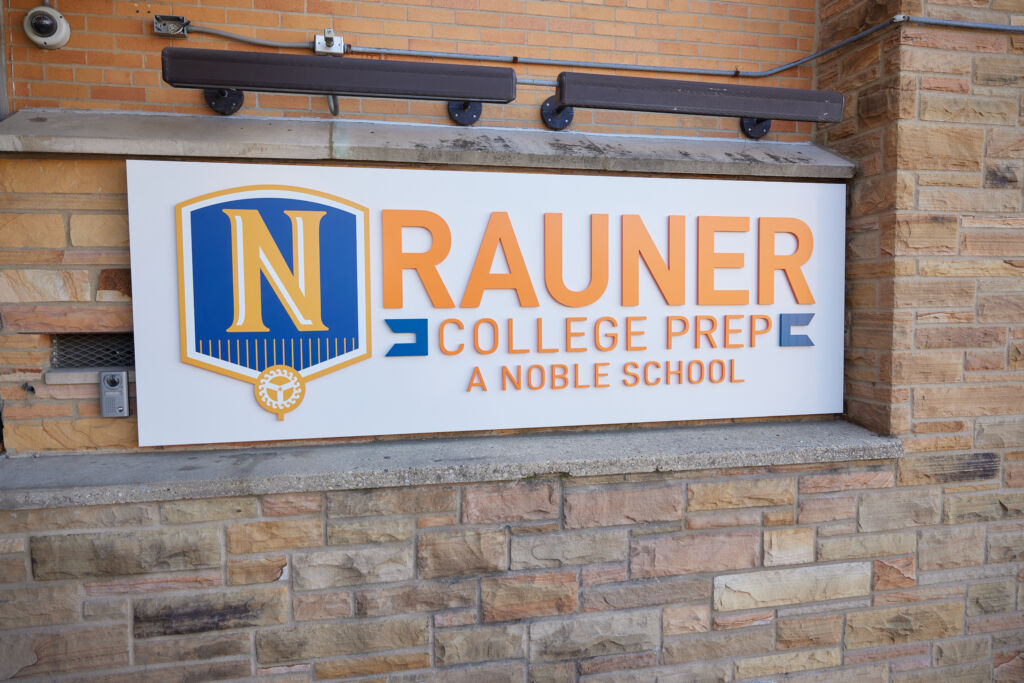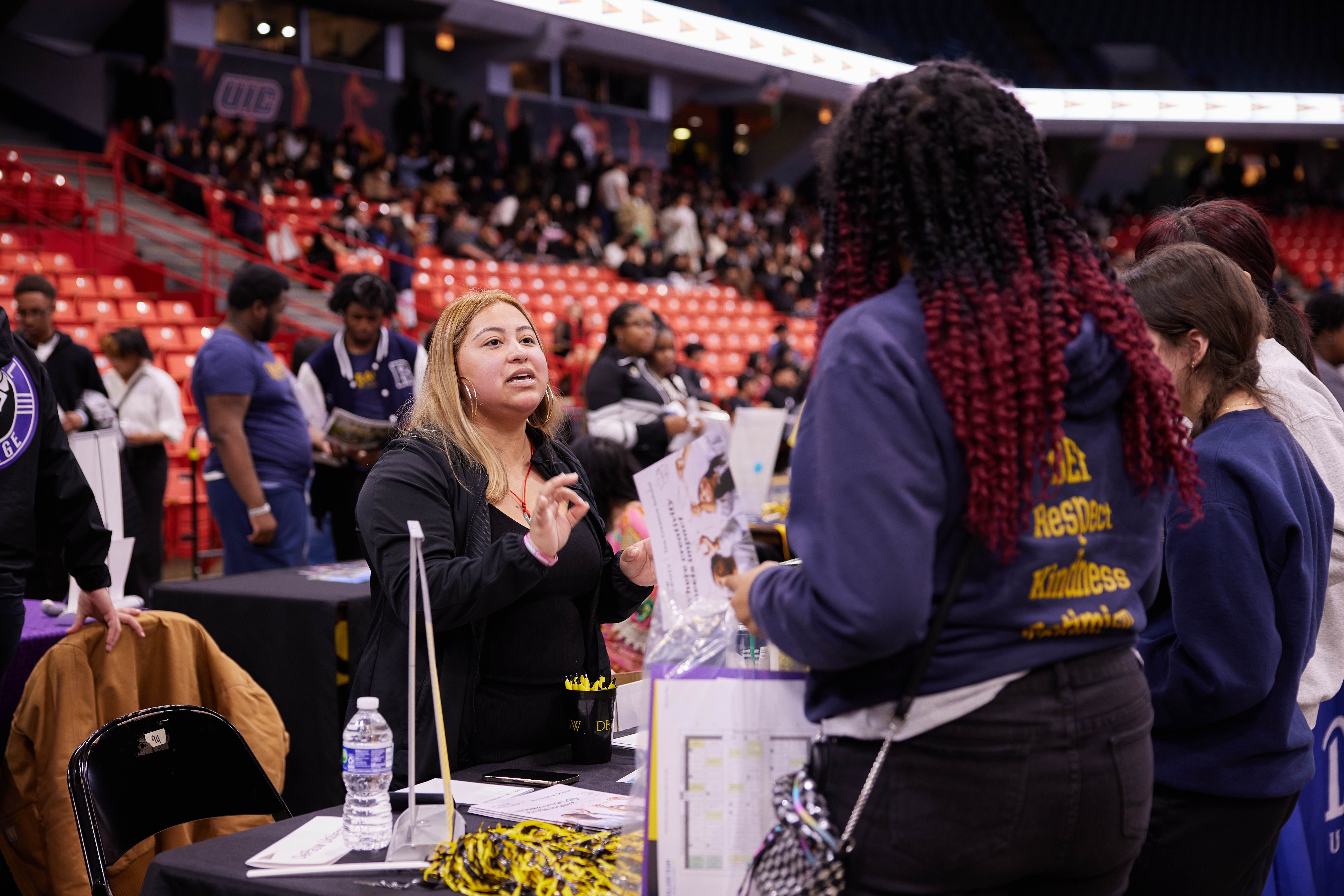
Right before spring break, hundreds of Noble Schools juniors roamed the booths of over 100 colleges and universities at this year’s Junior College Fair. It was a great opportunity for students to learn more about a wide variety of colleges and meet the admissions representatives who will be reading their applications.
Whether students had specific schools and studies in mind or were still considering all their options, the fair offered something for every student to learn.
“I’m really interested in a lot of things. I’m excited about the opportunity to go out, visit colleges, and explore; to talk to them and get to know them better, so they get to know me better,” Tashun W., a junior at DRW College Prep, said, “I got invited to a lot of visits, which is amazing. Overall, it’s just been a great experience.”
“I really got a lot of great information from my top list of schools I wanted to go to, and then some that I hadn’t even considered at all,” said Nahia W., a junior at Johnson College Prep.
“It’s honestly been really good. I feel like the colleges are really explaining even more than what we’re asking for. They’re really understanding of what we want to hear,” Briana L., a junior at Golder College Prep, added.
Dozens of admissions representatives at the event were more than happy to answer these students’ questions and give them the information they need to make a good choice. One of them was a Pritzker College Prep alum who had gone to the Junior College Fair herself when she attended Pritzker—Mari Santillan. She now works in admissions at DePauw University. We talked with her about her journey and what it feels like to be on the other side of the college admissions process, helping students just like her. Check it out:
Q: Can you tell us a little about yourself?
A: “I am the current assistant director of admission and diversity & inclusion specialist at DePauw University in Indiana. I just started there not too long ago, in July. Before that, I was a scholar coach at the Schuler Scholar Program, where I worked directly with students on college preparedness. I was stationed at Lindblom Math and Science Academy in Englewood. I worked there for about two years right after graduating from DePauw. Before that, I went to Pritzker in the Hermosa neighborhood, and I grew up in Riis Park. I also have a cute little puppy. His name is Zeus. He’s a pitbull-dachshund.”
Q: What do you do at DePauw University?
A: “I work with a lot of our community-based organizations like HighSight, Posse Foundation, and Schuler. I work with students on college preparedness throughout their admission process for DePauw. I’m also working with parents. and, as a DePauw alum and first-generation student, I know their concerns, I know what they need.”
Q: Why did you choose to work in admissions?
A: “While I was working at Schuler, I was helping students understand themselves and understand how to get into college. And I was being reflective—I felt like I was doing a good job, I was helping. I felt good, and my students felt good. And so I sat down, and thought, ‘If I can offer this much help now, in the pre-stage, how much more can I offer if I’m on the other side?’ That was when I knew it might be time for me to transition to admissions. I’ve always had my values pretty straight—it’s community and advocacy. So I asked myself: How do I give back to the communities that saw me grow up or that are very similar to myself? And how do I make higher education a bit more accessible? And that’s why I transitioned.”
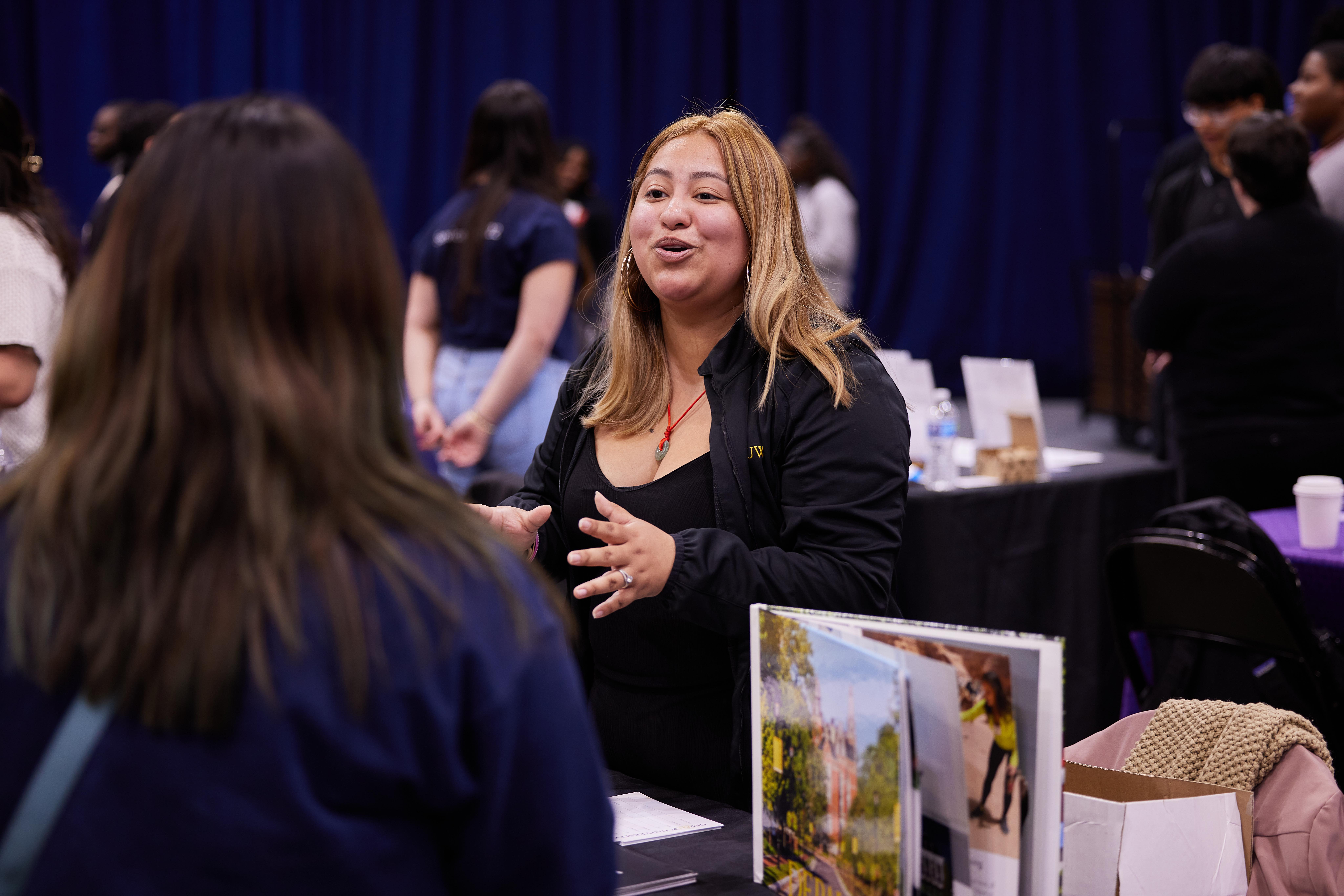
Mari Santillan talking with Noble students about DePauw University at the 2024 Junior College Fair.
Q: What new programming are you working on in your office?
A: “A new initiative we’ve begun is to offer more campus visits where we provide transportation to high school seniors. Transportation is already difficult for many students, so the goal is to make campus more accessible.
The programming for these trips also has intentionality behind it. We narrowed it down to: How can you see DePauw as home as an incoming student? Current students are helping with that—they are picking places on campus that have felt like home, and they get to talk about those places. My goal is that students visiting campus, whether they choose DePauw or not, arrive to campus confident enough to take up space—a space they deserve. You know, as a first-gen student, it’s often your first time on a college campus—you don’t understand what that feels like, you’re scared—it’s very difficult to step up and take space. My goal with this type of programming is for them to have enough confidence in themselves and who they are to come into a space like DePauw and say, ‘I belong here.’”
Q: How did your experience at Pritzker College Prep prepare you for college?
A: “I chose Pritzker because they really homed in on the idea that you will go to college. I knew I wanted to go to college. As a DACAmented student, I knew that school was going to be difficult regardless of where I went. Financial aid was tough. I knew it. So, I was kind of putting all my eggs in Pritzker’s basket… and it definitely worked out.
I found community, I found my friends, and I was involved in everything and anything from volleyball to the speech team to soccer to student government to Summer Of A Lifetime. It was a bunch of opportunities that I tried to make the best of while I was there.
I had mentors, and they really helped me make that transition . They made everything easier. One of them was my college counselor, Jane Knoche, and I will always, always trace back my success to her. She was always in my corner and she always advocated for me and pushed me. She was finding options left and right… and she’s actually a DePauw alum, so she was like, ‘Have you heard of DePauw? It’s part of PAS (Pritzker Access Scholarship). Let’s try it, you might like it.’ And I loved it. And then Jeff Watkins, he was my go-to teacher—he wrote all of my letters of recommendation, he fought for me, he supported my ideas, and overall pushed me to be a better me. We built a sense of trust. I felt like I really found someone who supported me, saw me, advocated for me, and did what was necessary to help me succeed. And it just felt really nice.
Also, when I got accepted into DePauw, had just started the Pritzker Access Scholarship, so I was a recipient of that.”
Q: What does it feel like to be on the other side of the admissions process now?
A: “When I talk to these kids now, as an admissions rep, I know what they’re feeling. When I talk to their families, I know their concerns.
My parents gave me moral support because they couldn’t support me in many ways. They supported me to the best of their abilities, which was really great—that was really their way of being like, ‘I’m here for you! I just don’t know what else to do.’ And so for me, it was like, ‘Okay, at least I know I can count on that, so that’s okay. I’ll figure out the rest.’
And so I touch on those concerns. And are like, ‘Oh, wow, thank you, thank you so much.’ It just feels really nice to be able to sit there and lift the weight and the pressure off the students’ backs because I know what that was like. And it’s like— ‘I got you, girl! Let me talk to your parents, let me take that away from you.’ Because, sometimes, that’s what it feels like. You’re the first kid to go to school, or you’re the second kid, And you’re just kind of like, ‘I really don’t understand what’s going on either, and I’m expected to explain this, but I don’t even get it.’ So it feels really nice to be able to talk to families and say, ‘I know what you mean. I know what you’re going through. Here’s how it’s gonna look.’”
Q: Why do you think college fairs like this are important for our students?
A: “I think are important for them to get an idea of what college can look like. It’s an early enough time for them to get an idea of what they’re looking for. So, now, they’re learning urban versus rural. They’re learning big versus small. They’re learning 6000 majors versus 60. They’re learning what different environments can look like, just by talking to someone. They also get a chance to meet their reps. It’s like, ‘Hey, I’m Mari. I’m the Chicago rep, and I will read your application next year.’ That’s what I bring up to them. I think that’s why these are very important to have—to get that idea of possible and can be accessible. It’s the first foot in the door.”
Q: What advice would you give to students as they are considering and applying to colleges?
A: “Being comfortable with being uncomfortable is very important. I think being okay with knowing that you don’t know is always okay. My grandma used to say: No one’s born knowing, you have to learn. So my advice is that it’s okay to ask questions. It’s okay to write your name somewhere. It’s okay to talk to us. It is okay to be uncomfortable. For admissions, at least, if you’re asking ‘uncomfortable’ questions, good. Make me uncomfortable. I should be able to answer your questions.
They’re doing a great job coming up to our tables and introducing themselves, you know, just talking to us. It’s really good to see that they already have that drive in them.”
